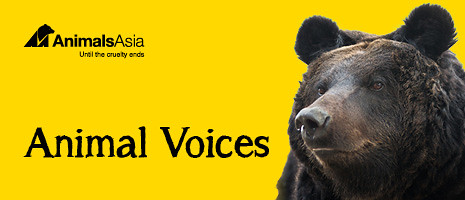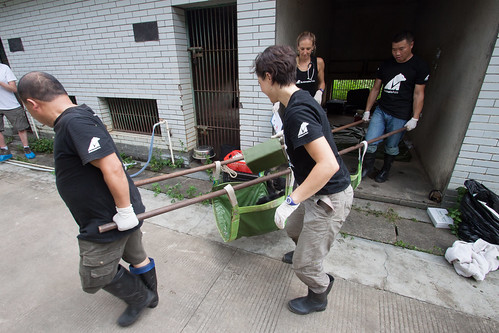While humans suffer is it right to help animals?
14 October 2015
In the fifth instalment of a six-part series Animal Welfare Director Dave Neale discusses the ethics of animal welfare in a world where people continue to suffer.
Q: Some people argue it is better to invest time and money in saving people rather than animals. How do you respond to that?
I personally think that the welfare of people and animals shouldn’t be separated. At Animals Asia we always try to adopt a humane approach. We believe the rights of people and the rights of animals are interrelated issues.

There are lots of people out there who are working specifically for people, and equally lots of people working specifically for animals. It is not right to say that we should prioritise one over the other, and likewise it is not right to vilify anybody for wanting to work specifically for the protection of one group. In working for the protection of animals we are not demeaning or rejecting the work of others specifically for the protection of humans. We need to recognise that these issues are interrelated.
Take the consumption of animals as an example. If we can change the way that people eat so they’re eating fewer animals, this would have a positive impact on the health and welfare of people.
With fewer animals raised there would be a greater supply of food available which could – given the right political circumstances – help to tackle issues such as malnutrition. Livestock consume one-third of all the cereal crops that we grow. If we eat less meat then in theory there could be more food made available for human consumption, as these crops would not be needed for animal feed.
There are also resource issues to consider, such as the amount of land that is used to produce animals for us to eat, and water availability. Estimates suggest that our annual water consumption per person is between 5,000 and 20,000 litres. Yet it can take as much as 20,000 litres to produce just 1kg of meat. So we’re diverting all this water from possible human use so that we can produce meat.
If you try to look at it as a whole, one of the best things we can do to improve global human health, safeguard the environment and improve global resource distribution is to reduce consumption of animals. In doing so, we would reduce the amount of suffering to animals in the process. Clearly, human and animal welfare are inextricably linked.
As Animals Asia’s Animal Welfare Director, David Neale works to improve the plight of animals in zoos and safari parks and increase overall veterinary and welfare standards in countries in Asia. His prolific career has taken him all over the world, rescuing animals in Bolivia, working as an ecologist in England and promoting animal welfare education in schools and universities. Since joining Animals Asia in 2002, David has travelled extensively across the continent, helping to rescue moon bears in Vietnam and carrying out zoo and circus investigations in China and Indonesia.
BACK







 Healing the hidden wounds
Healing the hidden wounds
 Early summer awakening at the China Bear Rescue Centre
Early summer awakening at the China Bear Rescue Centre
 5 reasons the dog meat trade must end
5 reasons the dog meat trade must end